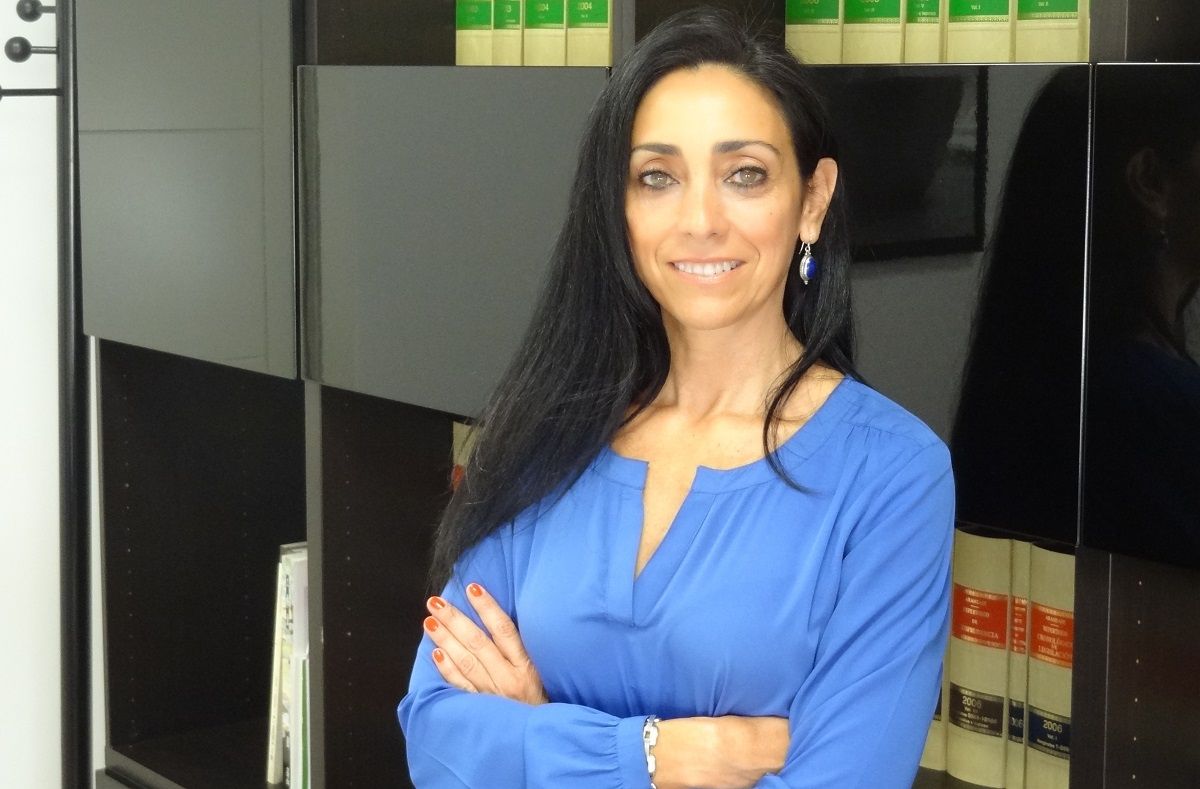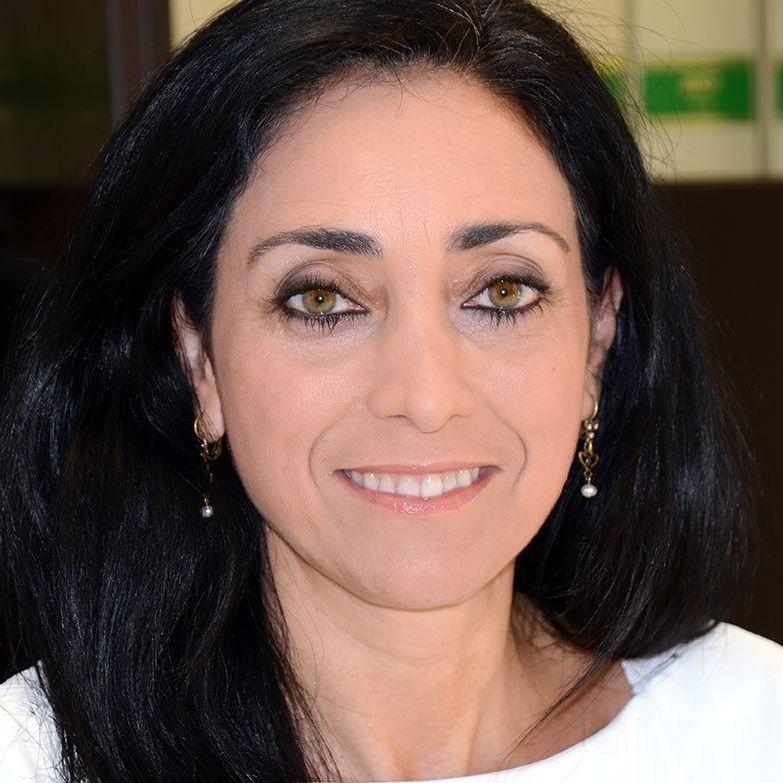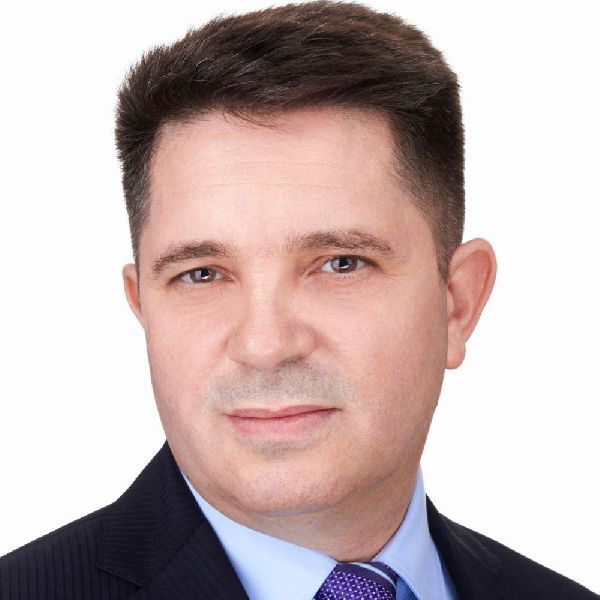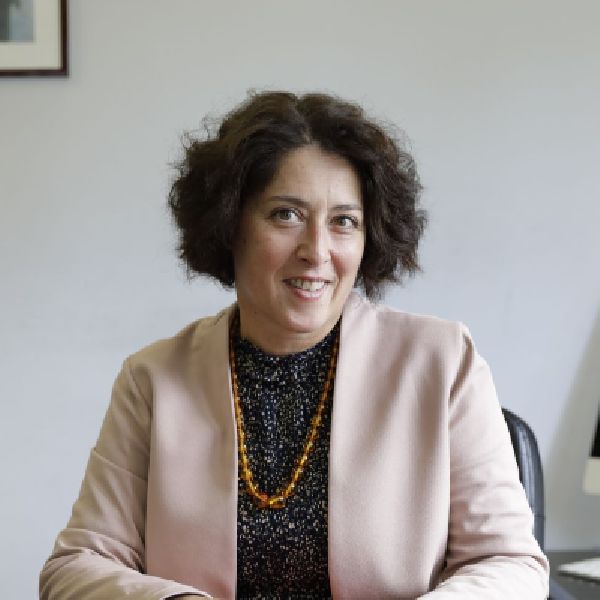
|
23.03.2023 | Teodor Burnar
|




|
Ms. Nadia Mesa del Castillo (WOLEP member, Spain): “You need to be a lawyer to do Collaborative Practice. This is our ADR. It is such a big change in the Lawyers’ mentality!”
WOLEP: Please present yourself to your WOLEP colleagues, who are surely interested in your career so far.
Nadia Mesa Del Castillo: Thank you for the opportunity! I am Nadia Mesa Del Castillo, a lawyer in Madrid, Spain. My work is based on Civil Law, but with more focus on Family Law.
WOLEP: When did the passion for these specialties begin? What sparked your interest in these areas of law?
Nadia Mesa Del Castillo: Well, it has been life, I think! Because in Spain, in the past, we finished studies with no specialization. Therefore, I have done everything – Criminal Law, Administrative Law... Everything! But life, as always, puts you on your path. I'm very fond of Family Law, because I think it is a very important area in society. After all, society is based on families - mothers, fathers, children. We are a society because we have families. For me, that is a very important fact. And I think I can contribute somehow in doing something good for the families. So, really, I am where I want to be.
I'm very fond of Family Law, because I think it is a very important area in society. After all, society is based on families - mothers, fathers, children. We are a society because we have families
WOLEP: I know that you have a special interest in the Collaborative Practice, an Alternative Dispute Resolution technique that is not very well known. I'd like to ask you, what is it, first of all, and how does it differ from other forms of ADR?
Nadia Mesa Del Castillo: Where do I begin? Indeed, the Collaborative Practice is not mainstream. I wish it would be, but no, it is not that well known.
As you know, the traditional ways of ADR are mediation, arbitration etc. And they are very different from the Collaborative Practice, because CP is our practice, I mean lawyers’ practice. Why do I say this? Because for mediation - you need a mediator. That can be anyone who's trained. An arbitrator can be a person who knows about the subject, but they do not need to be lawyer, in any case.
But to return to the topic of Collaborative Practice, you need to be a lawyer to do it. You need a lawyer to develop this system. That is why I say this is our ADR, the lawyers’ ADR.
And what is it? It is a negotiation system in which each Client goes with his own collaborative Lawyer, and you develop a negotiation based on the Harvard Negotiation. But there is a plus, as compared to a normal negotiation. That is the mentality, the change in the lawyers’ mentality.
We lawyers are used to work alone, to fight alone. And overall, to fight, and to win, and to win, and to win. That is not the aim. Of course, you want to win. But in another way. Traditionally, we have been fighting to win. As always - I win, you lose. This is the old paradigm. In the Collaborative Practice, we change to a new paradigm. Because I think as a society in general, we are fed up of fighting for everything. We are exhausted, and in families, you can imagine this applies even more. Fighting is very destructive. Very destructive. So, we, as family lawyers, were looking for something different. And this system has been created by a lawyer, for lawyers.
What Collaborative Practice brings to the table consists in the win-win paradigma: I can win, but you can win too. And how do we do that? By collaborating! I don't fight the other parties. I go and grab the hand of the other party. Together is better than alone. This could be the motto of the Collaborative Practice as it is very descriptive.
We lawyers are used to work alone, to fight alone. (...) This is the old paradigm. In the Collaborative Practice, we change to a new paradigm. As a society, we are fed up of fighting for everything. Fighting is very destructive. So, we, as family lawyers, were looking for something different. And this system has been created by a lawyer, for lawyers
WOLEP: When was your first contact with this technique - when did you first hear about Collaborative Practice?
Nadia Mesa Del Castillo: It happened in the pandemic. I was coming from a path that was destructive even for me. Why destructive? Because I saw that I was not able to help families, I was not able to build, but to destroy. I encountered the Collaborative Practice in Spain, and I loved it instantly! I immediately began to study, to train, because training not only means the Harvard negotiation system, but also soft skills, as you have to know to cope with the emotions of the people. These emotions are very important in decision-making.
We have to be trained on all that to unblock the negotiation. As lawyers using CP, we have to be trained on more skills than just law. And we have been doing all that. I began mainly with couples going through a divorce, with very good results. Very good, also considering the process was shorter. Here in Spain, litigation is a crazy thing. If you go before court, you can spend months and months and years. And I'm very happy because CP has proven it works. It really does. But I want to make clear this is not therapy, but a method in which you can do the things in another way. A better way. You can negotiate in a safe arena. The Clients can express themselves; they can say what they want to, including things that were hidden for a long time. And you can help the Client to reach their real needs and to understand the situation. For me, CP is a whole new thing and it's the future due to all the reasons I have presented.
Here in Spain, litigation is a crazy thing. If you go before court, you can spend months and months and years. And I'm very happy because CP has proven it works. But I want to make clear this is not therapy, but a method in which you can do the things in another way. A better way
WOLEP: I assume that this method does not work with everyone. There are people who want to go all the way, to fight and win only themselves. Due to the novelty of Collaborative Practice, are these Clients of yours and also of the other parties, hard to convince to embrace this route?
Nadia Mesa Del Castillo: Well, you know, I don't convince anyone. Because the people are adults, so they can make their own choices. I just show them the different methods, and it's their task to choose, not mine. I can give an advice, like: “I think, in your situation, it would be better to do this or that”. But the choice is theirs.
I don't resort to Criminal Law, though. I don't do that thing. I think in families, to use this path, is terrible, unless there is violence or a criminal offense, of course.
To return to your question, I don't convince anyone. I show them the options. There is a liberty they have. If they want to use the old way, fighting and courts, that's okay. It's their choice.
WOLEP: Because we touched upon some of the benefits of this practice, what would you say is, in your opinion, the main benefit of Collaborative Practice? Is it earning lots of time because you don't go through the classic process? Is it being civil and not engaging in fighting?
Nadia Mesa Del Castillo: Well, this is a very subjective question, because it depends on your point of view! (laughs) For me, it is that this system is not destructive. On the contrary. I mean, you are not renewing the relationship, but smoothing it in a way. The clients can talk freely, but having a structure, employing the advices you have given them, etc.
For me, it is very important to look at the victims in the crisis, namely the children. It is very important that the children be safe, that the children see their parents can negotiate in a peaceful way. This is a lesson for them. And I think this system can protect them from having many problems in the future - mental problems or relationship problems. For me, the focus is the family, and especially the children.
WOLEP: As a lawyer, are you drawing more satisfaction from the fact that this collaborative practice enables you to to be a facilitator?
Nadia Mesa Del Castillo: Of course. For me, it's a relief because everyone wants to make a difference in life. Speaking about my old practice - sometimes it's correct, yes. But in family law you sometimes feel that you collaborate to destroy something. And I don't like that.
With Collaborative Practice, I feel that I can really help people to go on, to change their life, because a family crisis is a major upheaval in life. It is both a finish and a new start. So, I feel that I contribute in a good way, which gives me a good vibe.
For me, it is very important to look at the victims in the crisis, namely the children. It is very important that the children be safe, that the children see their parents can negotiate in a peaceful way. This is a lesson for them. This system can protect them from having many problems in the future - mental problems or relationship problems
WOLEP: Are there any other professionals involved in CP that you work with?
Nadia Mesa Del Castillo: The characteristic in this process is that normally, in an out-of-court case, you need to study several different disciplines. For instance, you may need a financial advisor, to make the division of assets. Or maybe you need a psychologist, because you need some help when the communication between husbands is very difficult. Maybe you call a psychologist to help the conversation, or a life coach, to improve that. Or a child specialist, or an architect, or an accountant… We are lawyers, but if you are in a divorce, for instance, you will have to maybe use other professionals, who in this case are also trained on the collaborative system. Like I previously told you, it is not only about the Harvard negotiation techniques, but even more so about the change of mentality.
We are not fighting, we are collaborating, and that is very important for us collaborative lawyers. Because we are always talking to each other, to discover what works for all parties and to give the best options to our clients. Therefore, we are always in communication to discover the needs of the Clients. This is the basis of everything. This is such a big change in the lawyers’ mentality.
WOLEP: Can you mention other countries worldwide that are employing the method of Collaborative Practice?
Nadia Mesa Del Castillo: CP was born in the USA, being created by a lawyer in the 1990s. The main association there is the IACP (International Academy of Collaborative Professionals). They set the rules of the game, so to speak. And in Europe, there are a lot of countries that have followed this system - France, Germany, Netherlands, Italy. We actually have a Congress in Italy in May. Also, Ireland, and of course Spain. In Spain, for instance, there is my association, ACP (Abogados Colaborativos de Familia).
We are growing step by step. There is a real need, and as family lawyers we observe in practice that lack of the system, of the traditional system. We can do much more than just fighting in the courts. It's terrible. I would say the collaborative practice community is growing, slowly but steadily.
I would also like to point out that the collaborative practice was born and is very important in family law, but you can apply it in every conflict - business relationships or family relationships or whatever.
We are not fighting, we are collaborating, and that is very important for us collaborative lawyers. Because we are always talking to each other, to discover what works for all parties and to give the best options to our clients. Therefore, we are always in communication to discover the needs of the clients
WOLEP: Are there any laws in Spain that are addressing Collaborative Practice, or is your association, for example, looking to encourage this kind of development in law?
Nadia Mesa Del Castillo: In short, no. We have in place a mediation law that is an old one, and now they are working on another law that includes the ADRs. But the draft of this law does not name the Collaborative Practice yet. However, there is a big association, in northern Spain, ADCE, that is working hard to promote the Collaborative Practice and to get it included in the law. Still, we don't know if that will be a reality or not. We hope so.
WOLEP: Would you be interested in meeting other colleagues from WOLEP that also employ Collaborative Practice, and exchange views, exchange ideas from your activity? Would you like to speak to them and maybe collaborate in some projects?
Nadia Mesa Del Castillo: Of course! First of all, because we have to spread the word, because we believe in this way of solving problems. And on the other hand, because networking is vital in our profession as well. Also, because maybe sometimes you have Clients from different countries, so you need a collaborative professional in that other country to do the job. So yes, I am looking forward to that.
WOLEP: Do you have some last thoughts for your fellow WOLEP colleagues?
Nadia Mesa Del Castillo: I encourage my colleagues to at least approach this method, to know about it. I am sure that it would be very interesting. I think it's a new way of offering our services. But also, I think it's something that we can do to give back to the society. I think that is very important. I encourage them to at least know it.
To conclude, I want to thank you, the WOLEP team, because your effort of giving a platform to lawyers involved in this practice is clearly collaborative. You are involving people. We have to be united to be stronger. This is the simple, yet very important idea: not being separated, but united.
Are you a legal eagle with a passion for collaboration? Join forces with other legal professionals and elevate your practice to the next level. Don't wait, sign up now to WOLEP and connect with like-minded lawyers today. Register your account here.
#Interviews #Nadia Mesa Del Castillo #family law #ADR methods #law in Spain #Madrid



